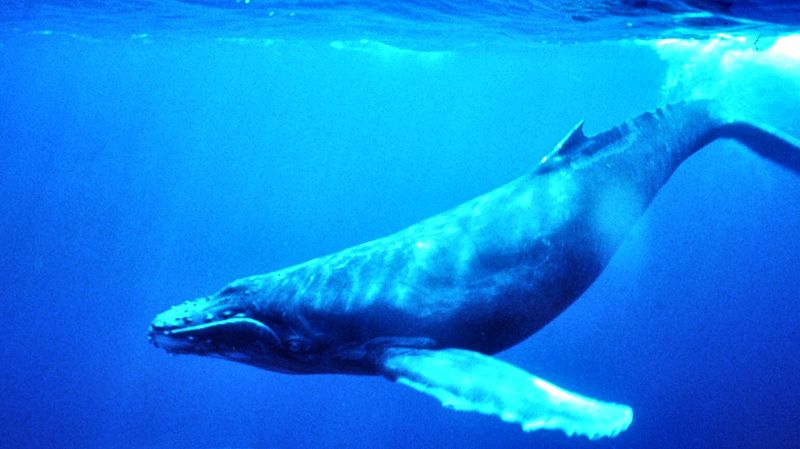Missing mega-poop causes nutrient crisis
Interview with
In the past, much of the world resembled an African savannah, dominated by  large free-roaming animals known collectively as megafauna. And size is important, because large animals like these played a key role in redistributing nutrients around their environment in their droppings. The same was true in the oceans. But now that many of these animals are extinct, the planet may be facing a nutrient crisis, as Oxford University's Chris Doughty explained to Rosalind Davis.
large free-roaming animals known collectively as megafauna. And size is important, because large animals like these played a key role in redistributing nutrients around their environment in their droppings. The same was true in the oceans. But now that many of these animals are extinct, the planet may be facing a nutrient crisis, as Oxford University's Chris Doughty explained to Rosalind Davis.
Chris D. - Large animals don't necessarily eat more than all the small animals in an area, but they do move a lot more. And so, they're really important for this process of transporting nutrients from point A to point B. and so right now, the world we find ourselves in, you have lots of concentration gradients and nutrients. So you have places with lots of nutrients and places with very nutrients. However in the past, we think that nutrients are much more evenly distributed both in land and in the ocean.
Rosalind - What did you see in your marine investigations?
Chris D. - Marine mammals and especially whales because of their large size are really important in redistributing nutrients both horizontally but more importantly, they redistribute the nutrients vertically. So they tend to feed at depth around 100 metres or so and then go to the surface where they need to breath and tend to redistribute these nutrients in the surface waters.
This is actually a really key point because normally, nutrient cycling occurs where you have nutrients flowing from mountain tops to the ocean bottoms. That's basically following gravity but what we showed in this paper is that mammals like whales, they actually can move nutrients against gravity. So basically, restoring nutrients to the land surface. We showed that in the past, this redistribution process was actually quite important and it's less than 10 per cent of what it formerly was.
Rosalind - Wow! Less than 10 per cent so it's actually gone in quite steep decline?
Chris D. - That's right and that's basically due to just population declines in whales, marine mammals, seabirds, and migratory fish.
Rosalind - Is there anything that we can do to solve this problem?
Chris D. - If we want to restore animal population, just stop hunting them and eventually, they'll come back. On land, it's a bit trickier because we're facing an ever more crowded planet. We can think about redesigning our pasture systems to kind of replicate natural systems. We have more biodiverse, fenceless pasture systems and then we could start to see an increase of nutrient fluxes as we hypothesise existed in the past.
Rosalind - And so, are we seeing sort of a decline in plant quality associated with the decline in nutrient content?
Chris D. - That's what we would hypothesise. Lots of ecosystems, especially tropical ecosystems are phosphorus limited. By that, we mean if you added more phosphorus, these plants would tend to grow faster. If the plants aren't as productive because there's less phosphorus that means there's going to be less fruitavailable for animals. And so, it basically has these cascading effects.
Rosalind - Is it just phosphorus or are there other nutrients in the cycle that are on the decline as well?
Chris D. - No. It's actually other nutrients also. I focus on phosphorus because phosphorus is one of these elements that are distributed by the animals that's really key to both plant life, animal life and human life because we need it for our fertilisers.
Easily accessible mined phosphorus may run out in as little as 50 years. And so the question is, what do we do in 50 years when we no longer have cheap phosphorus? Maybe we could kind of try to restore this natural system of recycling phosphorus that has existed in the past.
Rosalind - So, our plants in the UK would be much more healthy if we still had elephants roaming the land?
Chris D. - That's right. So basically, large animals are specifically important because they can move these nutrients over vast distances. It's quite interesting. Most people don't realise it but megafauna were once globally abundant.
A lot of people confuse megafauna with dinosaurs, but megafauna are mammals that co-evolved with our current ecosystems and actually, probably would still be here if human hunting and climate change hadn't caused their extinction. These animals were globally abundant. Without them, there was a vast decrease in what we would expect in fertility.




Comments
Add a comment